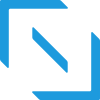by Bethany Frank
It takes a lot to decide to work for oneself, so first – congratulations! You’re already on the path toward greater financial freedom.
That said, living life as a freelancer is no walk in the park, and it’s easy to get lost before figuring out how to stand on your own two feet. Parting with “corporate life” also means parting with the security of predictable cash flows and benefits like health insurance, but it’s possible to thrive without all that. And it’s even possible to build it for yourself as your business grows.
Getting there, however, usually involves a few sacrifices along the way. Here are simple steps anyone can take to prepare themselves to get by on freelance income.
Start with a Backup Plan
It sounds counterintuitive, but in order to succeed as a freelancer, you have to consider what might happen if you don’t. Start by making sure you have enough of an emergency fund to cover a dry spell. Your income will always be in flux, but it’ll be much easier to find work and stay busy if you have the time to do so—being able to put your finances on autopilot for a bit could make all the difference.
It’s difficult to think too long-term as a freelancer, but with a bit of a contingency plan in place, you at least won’t have to worry about how you’ll eat this month. And hopefully the next. Beyond that– does anyone really know what’s to come anyway? It’s all about living in the moment, right?! (It better be if you’re thinking about freelancing…)
Carry Cash
Money itself is virtual in nature, a mere concept trusted by the general public. With all the innovation in digital payments, it’s easier than ever to spend more than you should. Enticing consumers to spend more money is, after all, the goal of behavior-influencing companies like Amazon.
What seems counterintuitive again is a good way for freelancers to stay frugal: budget in an “allowance” for yourself every month and withdraw that amount of money in cash. This is your personal fund – everything outside bills and expenses you’ve already budgeted must be paid for with this amount of cash. And once it’s gone, it’s gone! No advances on next month’s cash.
It’s difficult in a world so digital, but barring yourself from pulling out a credit card or shopping online every time you want to make an impulsive purchase will help you be more conscious about how you’re spending your money—and it’ll help you save more of it.
Simplify Your Life
Marie Kondo is a global phenomenon for good reason – her mantras on decluttering one’s life are a breath of fresh air in a world so polluted with consumerism and excess. If you’re thinking about becoming a freelancer, it’s a good idea to think about what you can cut out. For me, it was expensive lattes and trips to The Cheesecake Factory. For you, it might be swapping a fancy gym membership for at-home equipment or free runs in the park.
Whatever your indulgence (or vice), now is a good time to face it and cut it out for good. It’s not only good for your wallet – it could also be a positive change for your body and mind!
Don’t Do It Alone
Adjusting to life as a freelancer is difficult. Many budding entrepreneurs fail because they simply lack the right tools and guidance to help them plan their financial future. Namu is building new platform to help freelancers manage their finances, collaborate with clients, and navigate the nuances of working for oneself. Sign up to join our growing community.


